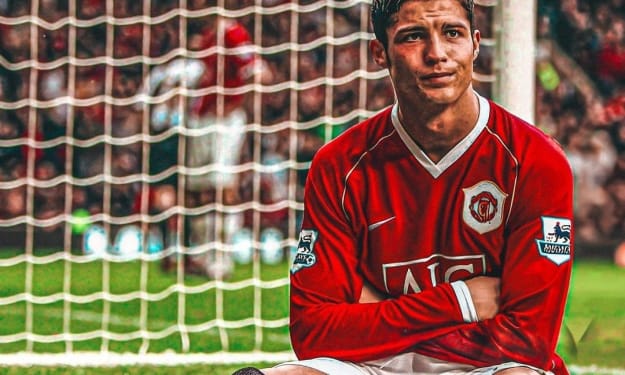The 10 Best Soccer Books Every Player Should Read
There are a number of soccer books every player should read if they want to truly understand the game. Each are worth a read whether you are a player, a coach, or just a lover of the game.

I know what you're thinking: "Soccer is about playing, not reading!" Well, you're right in one sense. You can't become a great soccer player without, you know, playing soccer. There is another dimension to the game, however. It's not just about the physicality of kicking the ball or rushing the field. There is a mental element. The best players in the game know the history of each league in the world. They understand the evolution of the playing strategies and coaching tactics. There are a number of soccer books every player should read if they want to add this dimension to their own playing.
Franklin Foer broke new ground in 2010 with this fascinating piece on how the game of soccer can serve as a window into bigger global issues. How Soccer Explains the World discusses everything from clashing world cultures and civilizations to the complex network that is the global economy. Foer sheds new light on this typical journalistic fare by presenting his observations through the lens of soccer. While the subtitle "An Unlikely Theory of Globalization" may be a little misleading, this surprisingly insightful book discusses the relationship between soccer teams, players, and their fans in all regions of the world.
Soccer (or futebol) is woven into the cultural fabric of Brazil. Perhaps more so than any other country, Brazil's identity is closely tied to that of its soccer teams and players. In researching for Futebol: The Brazilian Way of Life, Alex Bellos traveled all across South America in order to uncover the history of the sport in Brazil. Not only has Brazil had a lasting impact on soccer through its many phenomenal players, renowned as the undisputed leader of countries that have won the most World Cups, and multiple World Cup victories, soccer has, in turn, shaped the cultural and economic development of Brazil.
Jonathan Wilson's Inverting the Pyramid is one of the first soccer books every player should read. There are plenty of soccer books about the history of the sport itself, but Wilson's work actually delves into the evolution of soccer tactics and strategies from both a playing and coaching perspective. Take, for example, modern Barcelona: a leading Spanish soccer team known for its tactical genius on the field. This team's overall strategy can be traced back to a Dutch strategy known as "Total Football." In turn, "Total Football" can be traced back to the Tottenham Hotspurs and 19th century Scotland. This historical and technical knowledge is a must for any soccer player, coach, or fan.
I'm sure it's entirely intentional that this book is pretty much Freakonomics for the soccer fan—not that there's anything wrong with that. Soccernomics is a quirky book by Simon Kuper and Stefan Szymanski that applies economical, analytical tools to common soccer discussions. This left-field approach to soccer analysis uses numbers and hard data to draw some unexpected conclusions about the world's most beloved sport. This brand new edition has been updated to incorporate data from the 2018 World Cup.
There are a select few soccer books every player should read if they want to become serious about the sport. David Goldblatt's The Soccer Book is easily one of the most important primers for new players to get a broad view of everything, from the basic rules and information on top teams in each league to in-depth analyses of common tactics and coaching styles. Covering so much ground in a single publication is certainly a lofty goal, but Goldblatt succeeds with flying colors.
With a name like Winner, how can you lose? Those Feet is David Winner's "sensual" history of soccer in England. Winner is best known for his earlier work, Brilliant Orange, which documents the success of the Dutch soccer teams. In this book, Winner documents the history of England's numerous World Cup failures, using Victorian sexual anxiety as an analytical lens through which to study the ill-fated English National Teams of years past. Those Feet has no shortage of English wit as Winner documents the relationship between sport, history, and national identity in England.
Prolific sports writer Jonathan Wilson tackles the life of one of England's most iconic and effective soccer managers in his biography. Brian Clough and his right-hand man Peter Taylor struggled to build teams and reputations in post-war England, hopping between Derby, Leeds United, and Forest. Brian Clouth: The Biography documents Clough's personal development throughout this period, including the brash public persona he developed and struggles he faced in his later years, including alcoholism.
Brian Clough is one of the most enduring and interesting figures in all of soccer, so it's no mistake that books on his life appear twice in this list. Unlike Jonathan Wilson's biography, which encompasses the whole of Clough's public and private lives, David Peace's The Damned UTD focuses in on perhaps the most infamous 44 days of Clough's life. Brian Clough spent less than two months coaching Leeds United, one of the most corrupt soccer organizations at the time. Written as a novel, The Damned UTD is immediately gripping, and well-deserving of its designation as one of the best soccer books every player should read.
Let's change gears a little bit with Soccer School Season 1, which is aimed at incoming generations of soccer players and potential soccer superstars. From the pen of Alex Bellos, who also gave us Futebol: the Brazilian Way of Life, this book covers all the weird trivia and facts you didn't realize you needed to know about the game of soccer. For example, when is the best time for a professional soccer player to use the restroom? Through a series of anecdotes, comic strips, and just a touch of science, Soccer School Season 1 actually uses one of the best soccer books for kids to help introduce them to a variety of academic subjects, like math and biology.
Nick Hornby is a bestselling author of many hilarious novels that have little to do with soccer. His most pervasive work, however, might just be the autobiographical Fever Pitch. This work traces Hornby's childhood, young adulthood, and manhood through a series of match reports from the soccer games that shaped his life. For example, Hornby names 1968 as a formative year for himself. In 1968, he turned 11, his parents separated, and—most importantly—his father took him to see Arsenal play for the first time. As far as soccer books every player should read, this one is sure to hit home, and is an absolutely essential book every soccer fan should read.
About the Creator
Joseph D. N. Kendrick
Writer of words. Haver of cats. joeykendrick.com






Comments
There are no comments for this story
Be the first to respond and start the conversation.